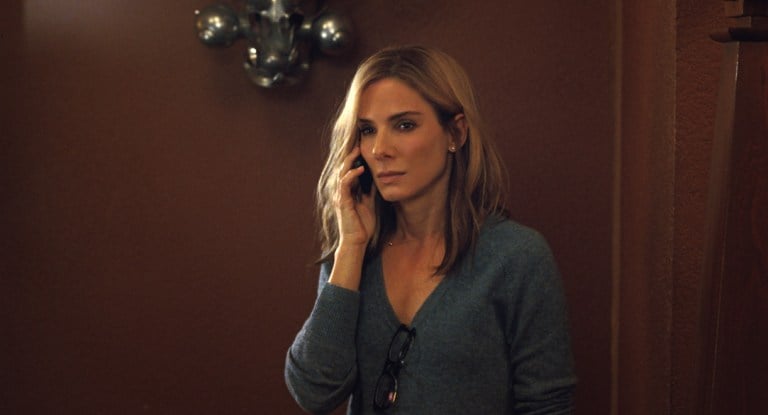As if the 2016 presidential debates weren’t enough, David Gordon Green’s “Our Brand is Crisis,” based on a 2005 documentary of the same name, mixes comedy with its politics. Although the film technically takes place in Bolivia, the political games displayed, along with the corresponding grimaces, are all too familiar. The film attempts to tell a compelling story of political corruption with the appropriate level of cynicism, but in an effort to walk the line between humor and drama, sidesteps into farce, cheapening rather than enhancing the drama that unfolds.
Sandra Bullock plays campaign strategist Jane Bodine, or “Calamity Jane.” She is drawn out of her retirement, and any attempt at sobriety, with the promise of competing with rival strategist Pat Candy (Billy Bob Thornton). Her team’s challenge is to travel to Bolivia and rebrand the standoffish Bolivian presidential candidate Pedro Castillo (Joaquim de Almeida). The premise itself smacks of a white savior narrative, and Sandra Bullock has some moments that feel distinctly reminiscent of “The Blind Side.”
The American consultant team is consistently presented as culturally unaware and incompetent in a foreign country. Only one American speaks Spanish, and their actions parallel the legacy of colonization in a way that is disconcerting. They are clearly in Bolivia to win an election, achieve their own goals, and then leave as quickly as possible. This could certainly be a legitimate condemnation of American interference, but the film fails to handle it as such. The ridiculousness of the Americans is utilized instead to get some easy laughs from the audience, discounting any criticism that could potentially be leveled against the team.
The film also reinforces many stereotypes about the people of Bolivia. In one scene, the campaign team tries to overtake the bus of the opposing candidate. After one attempt to pass the bus, a member of the campaign team asks the driver, “How much to overtake that bus?” After the bribe is proffered, the Bolivian bus driver, of course, delivers on the request.
The political drama is what makes for the film’s compelling moments. The strategies that Jane employs with the team are witty and occasionally unexpected. The genuine humor conjured up in these instances is earned through effective storytelling, not through stereotypes. The film also wrestles with legitimate political problems, chief of which is Bolivian citizens’ opposition to involvement with the IMF and globalization. The film makes the point that consequences of globalization are not exactly positive, referencing the effects on Bolivian indigenous populations. Moments like these display the film’s potential, which makes it all the more frustrating when it reverts to schlocky feel-good comedy.
The result is a film that suffers from an identity crisis. “Our Brand is Crisis” desperately wants to be a legitimate condemnation of corruption in politics. But by relying on stereotypes and ridiculous jokes to keep the viewer engaged, the movie sacrifices an opportunity to do justice to what could have been a powerful political statement.
Contact Reed Canaan at rcanaan ‘at’ stanford.edu.
